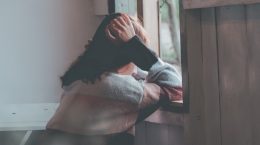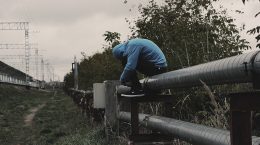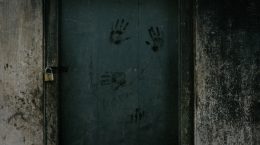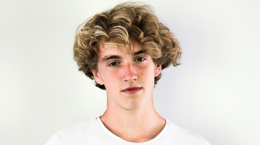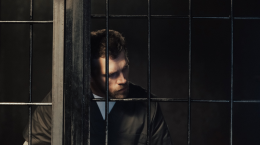Children deprived of their parents are much more likely to face problems with the law and become victims of drug traffickers. Thinking about easy money, they do not know that they are waiting for the torture of the security forces, huge deadlines, backbreaking work for a penny in the colonies. ICCI “Our House” has been helping people punished for drugs for more than four years. Activists of “Our House” have prepared statistics on the convicts who are behind bars-328.
About prisoners
Of the 114 prisoners, information about which is available at “Our House”, 109 are boys and men, five are girls. At the time of detention, 28 of the convicts were minors, at least three were less than 16. There are not only Belarusians among the prisoners. Some were born in Kyrgyzstan, Turkmenistan, Russia, Lithuania.
Many convicts faced problems in the family as a child. So, out of 114 people, at least 36 are orphans, at least two are from dysfunctional families. Some have foster families abroad, relatives who help with transfers to prisons and fight for prisoners. However, 20 orphans do not have people who could support them. Only the movement of activists “Mothers-328” and the ICСI “Our House” helped them.
Six people, in addition to the lack of help, have problems with housing. As apartments from the state, orphans were offered houses in disrepair, rooms in dormitories, and someone is still waiting in line for housing. Three of them owe the state: one of the prisoners has utility debts, two have no payments for court costs. Two more people need help to pay for the services of a lawyer. And one of the orphans was deprived of all pension payments.
It is noteworthy that some guys decided to make money on the distribution of smoking mixtures, which later turned out to be drugs, to help their relatives. One of the detainees wanted to make repairs at home and to help parents in a difficult situation. The other was thinking of buying shoes for his sister.
In the colonies, 328 convicts faced various health problems. At least two had chronic diseases before entering the institutions. Three more got HIV and AIDS during the judicial investigation and staying in the colony.
Education
The convicts under article 328 received secondary special education. At least five before the arrest managed to graduate from colleges or lyceums, two more became holders of bachelor’s degrees. Six prisoners have incomplete secondary special education behind them. Due to being arrested, they were unable to pass the exams and get a diploma. One arrested person graduated from school before being taken into custody, but did not have time to enrol in school. At least three failed to get a general secondary education in freedom – they had to pass the final exams for the certificate, already behind bars.
Violations by the security forces
Among 114 convicts, at least 80 faced violations during detention, investigation, stay in a pre-trial detention centre and trial. The most common ones are arrests under the age of 18 (as we have already written, 28 teenagers faced this), the absence of a lawyer at the first interrogation. Five minors and four adults suffered from beatings and torture, handcuffs and abuse of official authority. Two more were tortured with a stun gun to get confessions from them. Two were driven to suicide attempts, one committed suicide due to the torture of security forces. At least three people face in custody with non-provision of medical care.
Deadlines
The maximum term received under article 328 is 16 years. At least 61 people received sentences of more than ten years under article 328. At least 20 were sentenced to 8 years in prison, at least 14 – to nine years. The same severe penalties were applied to minors. Four of them were sentenced to 11 years in prison, nine were sentenced to 10 years, five – to 9 years, six to eight. One minor was sentenced to seven and five years each.
In which colonies do prisoners serve their sentences
Most of those convicted under article 328 of the Criminal Code are in the units of PC-22. When in 2014 Lukashenka announced the need to toughen the punishment for drug crimes, they talked about creating a separate colony for such convicts with the most severe conditions. Then PC No. 22 was reformatted – and most of those who received a sentence for drugs have been going there. Prisoners work in a sewing workshop, woodworking or disassembly of ferrous and non-ferrous metal, receiving from 0,23 to 3-5 euro a month for their work.
In the second place in terms of the number of convicts-328 – correctional colony No. 2 in Bobruisk. Here, too, there are detachments for those who are serving sentences for drugs. Prisoners are kept separately, do not meet with those sitting on other articles, wear coloured stripes on their clothes. The colony is known for the fact that it was here that a riot of prisoners began in the first days after the 2020 elections.
A separate detachment for the accused under article 328 was also created in the PC-17 in Shklov. Political prisoner Witold Ashurak, who died in May 2021, was serving his sentence in this colony. The activist had his head bandaged so that only his mouth was visible, and his hands were swollen. In letters, he wrote that there is also a coloured differentiation of prisoners, and not only “narcotic”, but also “political” are marked in a separate colour.
In the correctional colony No. 3 (“Vitba” ) in Vitebsk, there are also prisoners under article 328. In the same facility, there are convicts under political articles. In 2017, one of the prisoners with a diagnosis of “bullous emphysema of both lungs, pneumothorax on the right and the left” was not provided with medical care. His health complaints were ignored, and he was sent to work for metal disassembly.
Correctional colony No. 15 in the Veino village, Mogilev district, has become another haven for drug convicts. Here they also work on wire processing, and they do not have the opportunity to change jobs, unlike other prisoners. There is a water of disgusting quality in the colony, in which the prisoners do not even want to wash their hands, let alone drink and cook food. In 2020, it became known that a prisoner died of coronavirus in this institution.
Some prisoners are sent to colony No. 13 in Glubokoe. This category mainly defines those convicted of serious crimes, sentenced to life imprisonment. Many do not receive medical care on time. Prisoners die in the colony – in 2017 one of them jumped out of the window, the other with a high temperature was sent to work at a sawmill, after which he died on the way to the hospital. The prisoner, who was sitting under Article 328 of the Criminal Code, also died from failure to provide medical care. “Deaths happen regularly. They treat a person’s life there very easily: if he left, that’s where the road is for you. In the summer, a guy died at a woodworking plant – he had a sharp piece of board stuck in him, which flew off from the machine. He died in front of other prisoners. An employee of the administration only changed his shoes for official ones – so that it would look to the inspectors that he worked without violations of the uniform of clothing, ” said one of the relatives of the convicts.
Minor prisoners are held in the educational colony No. 2 of Bobruisk. According to data for 2019, 40 per cent of those convicted in the institution were serving sentences for drugs. The employees of this colony send boys to hard work without protective equipment, massively assign them the status of” malicious violators ” before the amnesty. Because of this, the term is not reduced for children.
Amnesty
According to the ICСI “Our House”, the amnesty was applied to four prisoners.
The team of the ICСI “Our House” continues to support those convicted under article 328. We believe that the long terms imposed by the Belarusian court under this article are unfair. For ten or twelve years in prison, people, especially teenagers, get used to prison culture. And this has a deplorable effect on later life. After the victory of the Belarusian people, all these punishments will be reviewed.




